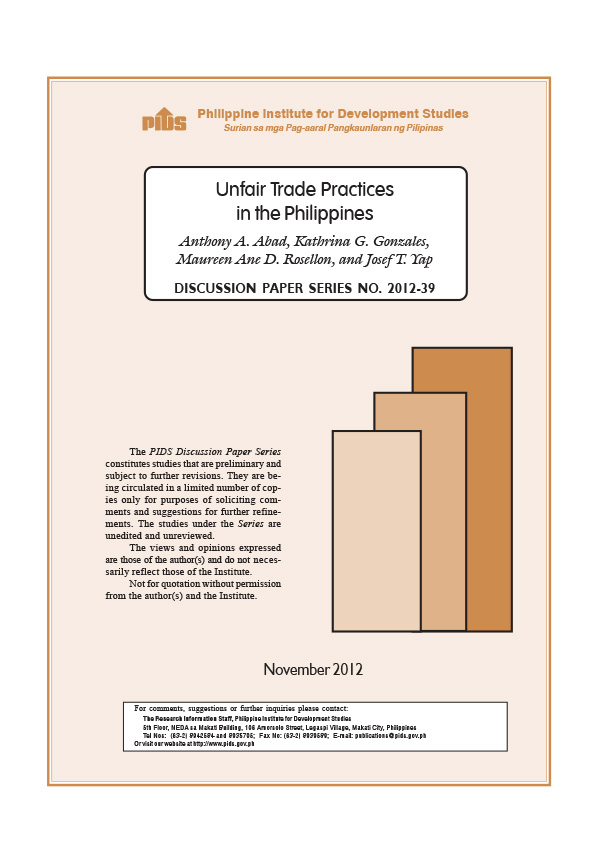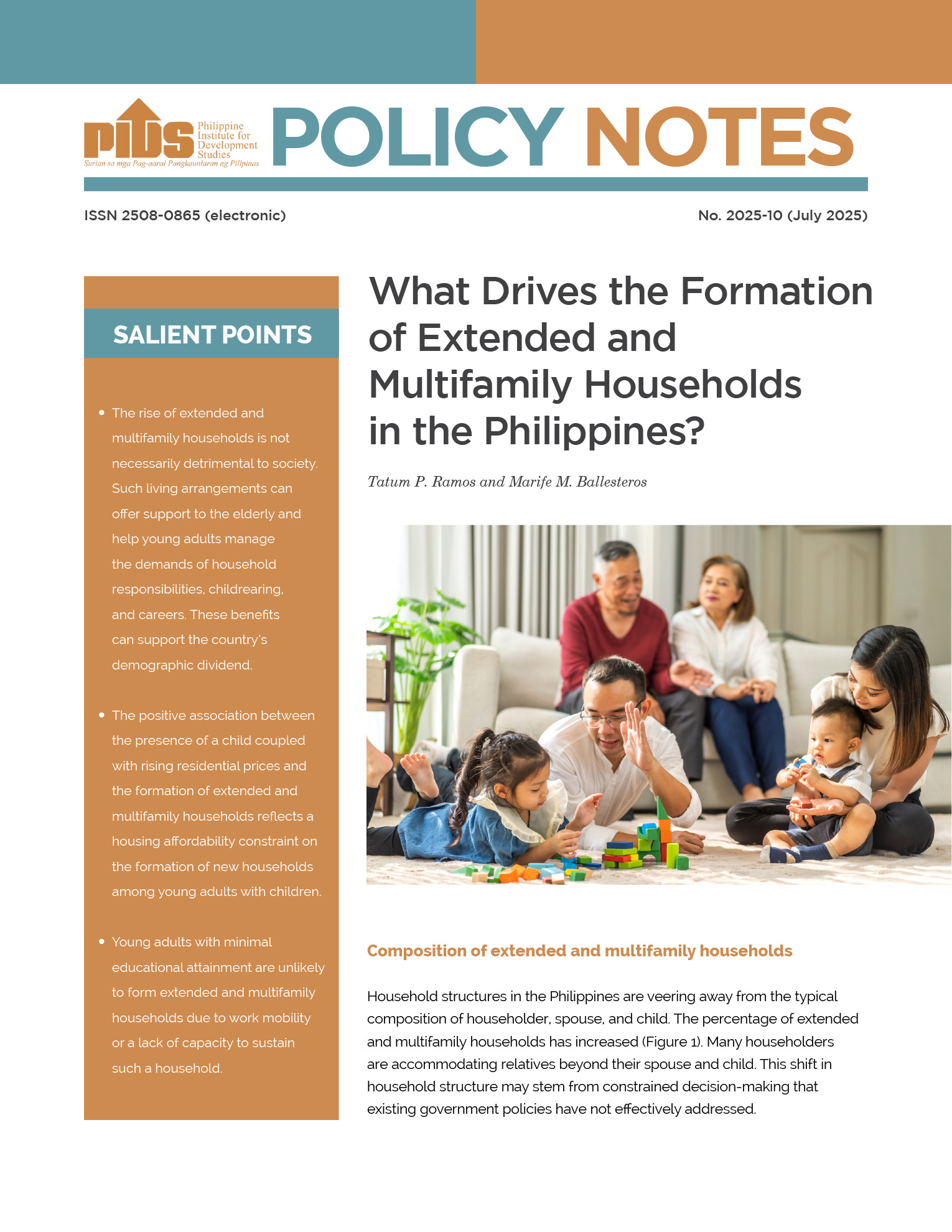Unfair trade practices (UTPs) demonstrate anticompetitive behavior which can be characterized into two general types: exclusionary abuse--an act of the firm (or a group of firms) to prevent entry of potential firms; or exploitative abuse--referring to actual abuse of market power. However, this study adopts a narrower definition of UTPs which are wrongful or deceptive practices implemented by a business that cause an economic injury to a consumer (B2C) or another business (B2B).
A survey was conducted to determine the extent and awareness of UTPs in the Philippines. The main finding from the survey results is that many respondents indicate that UTPs are moderately to highly widespread. Moreover, an overwhelming majority believes that UTPs have adverse impacts on business transactions and consumer welfare. However, not many are aware of the legal remedies against UTPs. Moreover, business firms interviewed are reluctant to participate in legal action against UTPs. The reluctance pursue legal channels against UTPs may imply that there are gaps in the legal infrastructure to address B2B UTPs. The survey results can also be interpreted to mean that while businesses are aware of the adverse impacts of UTPs, they do not seek to "rock the boat." The latter is consistent with the lack of a `culture of competition` in the Philippines. This can be partly addressed by the establishment of a comprehensive competition law.
Citations
This publication has been cited 2 times
- Serafica, Ramonette. 2016. Sustaining the competitiveness of Philippine services. Philippine Journal of Development PJD 2014-2015, 41-42. Philippine Institute for Development Studies.
- Serafica, Ramonette. 2015. A comprehensive Philippine government strategy on the competitiveness of the services sector. Discussion Papers DP 2015-05. Philippine Institute for Development Studies.













